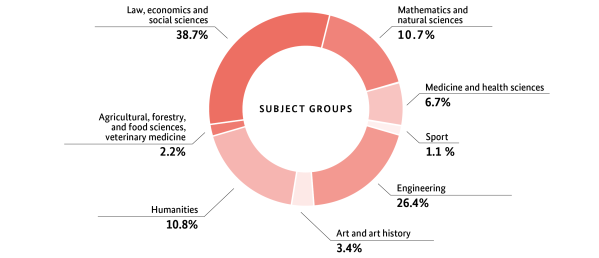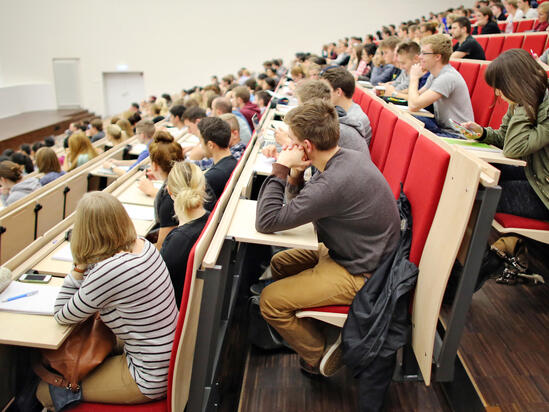Schools and universities
As a place to learn and research, Germany enjoys a strong international reputation, from its school system to the dual vocational education system and its varied higher education system.

Insight
Excellent higher education
German universities and higher education institutions enjoy a very good reputation the world over and are sought-after cooperation partners. Germany is also the most popular non-English-speaking host country for international students.
Overview
School and education
In Germany, it is the 16 federal states that are responsible for education and education policy. The German model of dual vocational training, which combines theory and practice, is in strong demand internationally.
Facts and figures
© drubig-photo/stock.adobe.com

9 years of compulsory education
Children aged six and over must attend school for a minimum of nine years in Germany.
© Kalinovskiy/stock.adobe.com

11 million pupils
The number of children and young people who attended one of the over 40,000 schools and vocational colleges in Germany. Around 798,000 teachers work at these institutions.
137 German Schools Abroad
Around 84,000 pupils across 70 countries attend these schools, with 23,000 speaking German as a first language.
324 apprenticeship trades
Training for these professions covers both theoretical and practical elements in Germany’s dual system.
© BullRun/stock.adobe.com

37,000 university collaborations
German universities have agreements with partners in more than 150 countries.
© Monkey Business/stock.adobe.com

420 higher education institutions
The German higher education world offers excellent prospects even beyond the big cities.
© Jacob Lund/stock.adobe.com

2.9 million students
More than half of young people in Germany now study for a university degree.
Higher education students in germany











